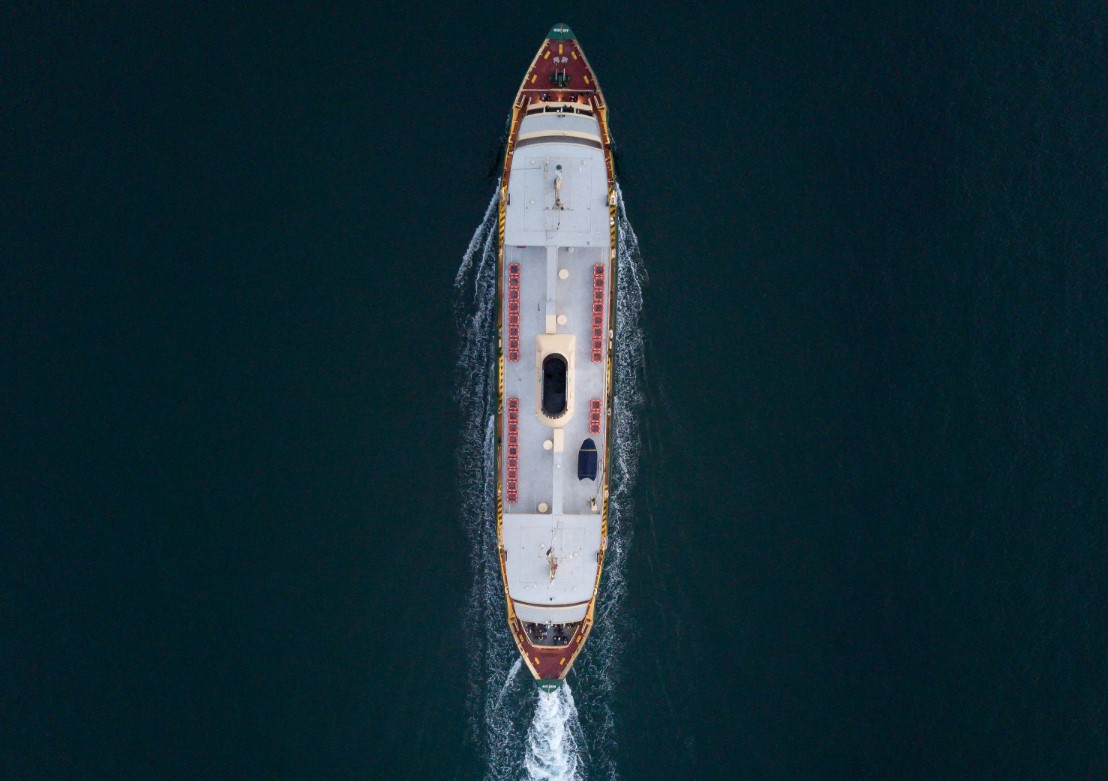Greece has once again reaffirmed its dominance in world shipping, with more than 650 vessels currently under construction across all major fleet segments, according to the latest report by Xclusiv Shipbrokers (October 2025), and mentioned in Newmoney.
From bulk carriers and tankers to containerships and LNG or LPG carriers, Greek owners are leading a wave of fleet renewal and technological modernisation, investing heavily in green propulsion, energy efficiency and next-generation shipyards.
This strategy, far from being a simple investment cycle, has evolved into a national maritime policy in action, ensuring that Greece remains at the top of global shipping well into the era of energy transition.
In dry bulk, Greek owners have 156 vessels under construction, representing 11.5 per cent of the global orderbook.
The focus remains on Kamsarmax and Panamax types, which together account for around 62 per cent of new orders. In the tanker sector, activity is even stronger, with 285 ships currently being built, nearly a quarter of all tankers under construction worldwide.
Orders are concentrated in Suezmax and Aframax/LR2 categories, reflecting owners’ preference for flexible, energy-efficient designs suitable for alternative fuels.
Containerships also form a significant part of the picture, with 111 Greek-owned vessels on order, about 10 per cent of the global total.
Most of them are Neo-Panamax, tailored to meet the modern demands of high-capacity international routes.
In gas carriers, Greece maintains a commanding presence, with 55 LNG vessels representing 17 per cent of the global orderbook and a further 44 LPG ships accounting for 14 per cent.
Taken together, Greek shipowners now control 17.8 per cent of all new ships being built globally, confirming their leadership not only in scale but also in technological direction, as the industry accelerates towards cleaner and more efficient operations.
While Greece dominates the new-building landscape, Cyprus continues to strengthen its position as a maritime centre and ship-management powerhouse.
According to Statbase (UNCTAD-derived data), Cyprus counts over 415 vessels under beneficial ownership, a number that has been steadily rising over the past decade.
The Cyprus Ship Registry itself has expanded by roughly 20 per cent in gross tonnage over the past two years, reaching its highest level in two decades.
During early 2024 alone, more than 170 vessels exceeding four million gross tons were added to the flag, according to Hellenic Shipping News.
At the same time, the ship-management sector has recorded remarkable growth. Revenues reached €918 million in the second half of 2024, equivalent to 5.3 per cent of GDP, and climbed to €978 million in the first half of 2025 (5.5 per cent), according to the Central Bank of Cyprus (CBC).
The figures underline Cyprus’ growing importance as a hub for technical, crew and commercial management within the European Union, attracting fleets from Europe, Asia and the Middle East.
Today, Cyprus ranks among the world’s top ten flag states, with approximately 24.4 million gross tons registered, much of it comprising Greek-owned and internationally managed fleets that have chosen Limassol as their operational base.
Although Cyprus’ share of the global orderbook remains smaller than Greece’s 18 per cent, the island’s strength lies in its legal stability, tonnage-tax regime and reputation for transparency within the EU.
A decade of CBC data shows the island’s steady ascent. Ship-management revenues, which stood at €462 million in 2015, rose to €623 million in 2023 and surpassed €978 million in 2025, while registry tonnage grew from just over 20 million to more than 25 million.
Cyprus has consistently maintained its place on the Paris and Tokyo MoU White Lists, a benchmark of flag credibility and operational safety.
Cyprus is now widely regarded as Europe’s largest ship-management centre, hosting around sixty specialised companies and employing over 40,000 seafarers through Cyprus-based firms, according to KPMG’s 2024 Ship Management Report.
The island’s strategic location at the crossroads of Europe, the Middle East and Asia continues to attract leading shipowners and operators seeking an EU flag backed by robust infrastructure and skilled manpower.
Among the key players are Columbia Shipmanagement, Bernhard Schulte Shipmanagement (BSM), Interorient, Marlow Navigation, Uniteam Marine, Intership Navigation, Fleet Management, Fameline Holding Group, Island Oil Holdings, Oesterreichischer Lloyd, Lavar Shipping, Mastermind Shipmanagement, and FML Ship Management, all headquartered or significantly based in Limassol.
Together, they manage tens of millions of deadweight tons, underpinning Cyprus’ reputation as a global hub for ship and crew management.
Several Cyprus-based shipowners have also become increasingly active in fleet renewal.
Lemissoler Navigation has ordered four methanol dual-fuel Ultramax bulkers, with options for four more, marking the first such order for this vessel class in China.
Safe Bulkers, the largest shipowner in the Cyprus registry, operates 45 bulk carriers with six newbuildings on order, continuing a renewal strategy aligned with IMO emissions targets.
Meanwhile, Eureka Shipping, a Limassol-based joint venture between CSL and SMT, has recently ordered a new cement carrier in Europe, expanding its specialised industrial fleet.
The fuel-transition narrative is equally prominent in Cyprus.
Columbia Group, headquartered in Limassol, expects that by the end of 2025 dual-fuel ships will make up half of all global newbuild orders, with LNG propulsion accounting for 70 per cent, a projection consistent with the management portfolios handled by Cypriot-based technical teams.






Click here to change your cookie preferences